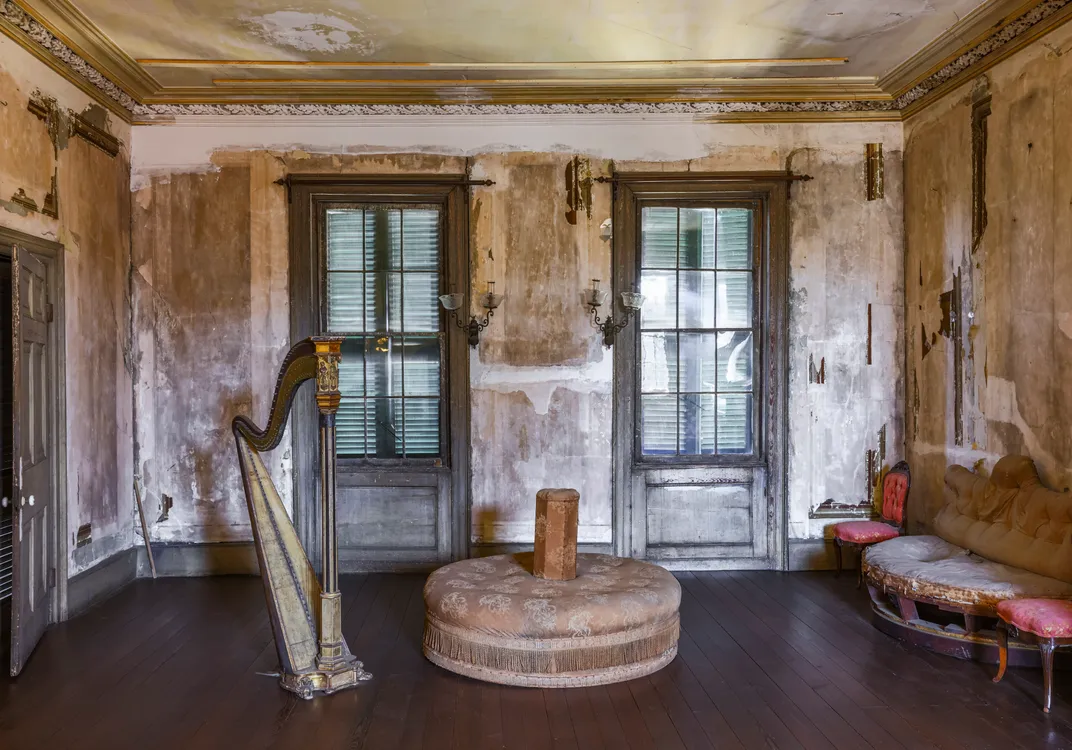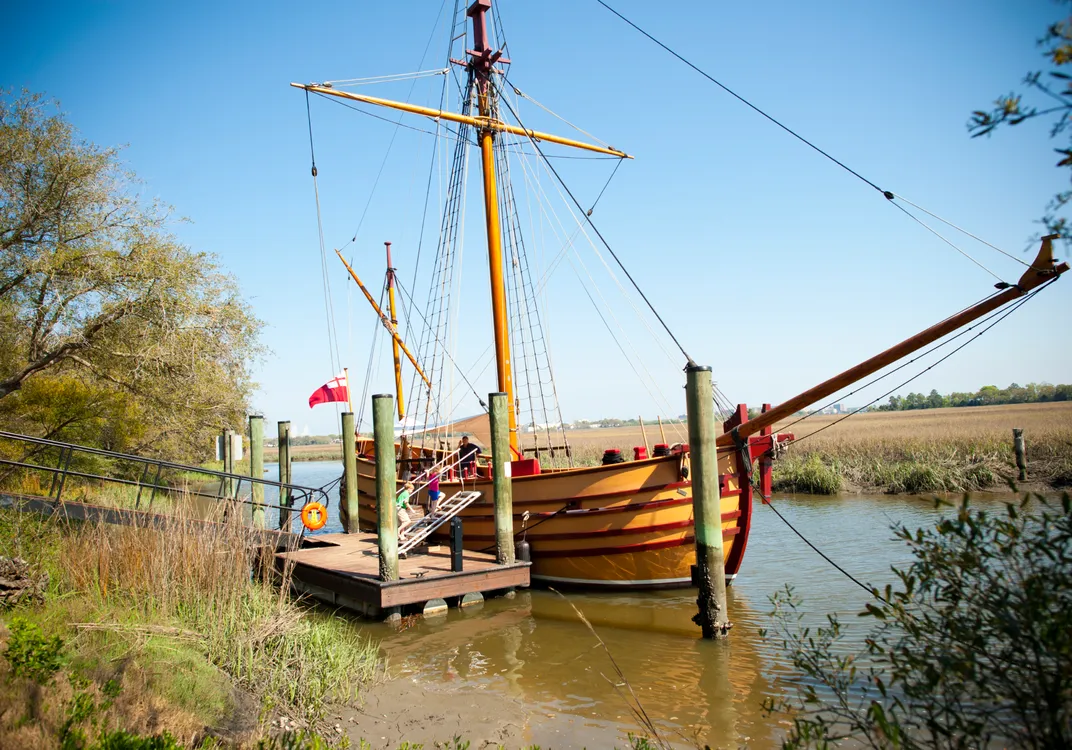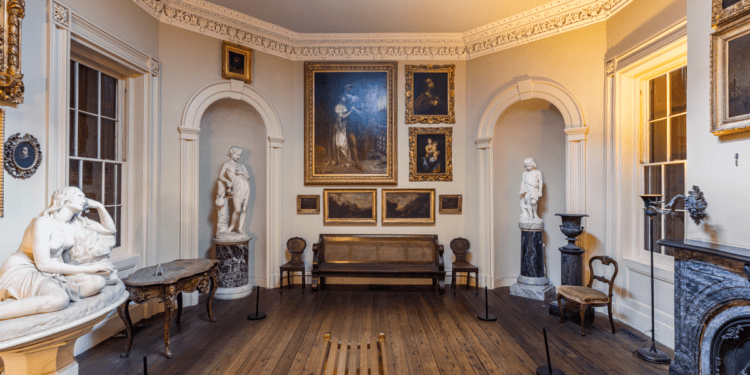Joseph Manigault House.
The region’s antebellum period was marked by tremendous wealth, often derived from the region’s prosperous rice plantations. The Joseph Manigault House—a stunning Federal-style mansion built in 1803—offers a glimpse into the lavish lifestyle enjoyed by the area’s elite during this period. The house is a striking example of Southern grandeur, once owned by and since named for a prominent member of the area’s wealthy planter class, Joseph Manigault. It features grand staircases, European-inspired architectural details, and a collection of ornate furnishings. Â
Today, visitors can tour the carefully preserved interiors—from the grand drawing rooms where the Charleston area’s elite entertained guests, to intimate quarters that provide a window into the opulent domestic lives of its upper-class residents. Outside, the surrounding gardens make for a quietly meditative retreat, showcasing 19th-century landscaping techniques and a variety of native plants. The Joseph Manigault House is an essential stop for understanding how the Charleston area’s high society once lived.Â
When to Visit: Open daily, 10 a.m. to 5 p.m. Tickets are available through the Charleston Museum.Â
3. Aiken-Rhett House: An Antebellum Time CapsuleÂ

Aiken-Rhett House.
The Aiken-Rhett House is a gently preserved relic of the Charleston area’s antebellum and post-Civil War history that offers an unvarnished, at times haunting, window into the contradictions and complexities of its past. Built in 1820, the house was later owned by Governor William Aiken Jr., one of the area’s most influential figures. The Aiken-Rhett House has been left largely untouched, affording an unvarnished glimpse into day-to-day life from centuries past. Â
Take a self-guided audio tour through the ornate mansion and the preserved slave quarters, offering a rare chance to experience the realities of both groups. The audio guide incorporates personal stories and historical context, bringing the period to life in a way that resonates deeply with visitors. Â
When to Visit: Open daily, 10 a.m.to 5 p.m. Self-guided tours are available.Â
4. Charles Towne Landing: Tracing the Area’s Colonial RootsÂ

Charles Towne Landing.
Established in 1670, the Charleston area was the site of the first permanent European settlement in South Carolina. Charles Towne Landing State Historic Site marks this crucial moment in American history. The park includes an interactive museum, a replica of a 17th-century trading ship called the Adventure, and a working period farm, offering visitors a hands-on experience of European colonial life.Â
Costumed interpreters and live demonstrations bring the history into focus, offering insight into the relationships between settlers and Indigenous peoples—and the daily struggles of life in an unfamiliar and often hostile environment. Whether strolling through the lush parklands or boarding the Adventure, Charles Towne Landing is an immersive experience that sheds light on the area’s colonial beginnings.Â
When to Visit: Open daily, 9 a.m. to 5 p.m. Admission is available at the gate or online.Â
5. Patriots Point Naval & Maritime Museum: Anchored in American HistoryÂ

Patriots Point Naval & Maritime Museum.
Patriots Point Naval & Maritime Museum offers an unforgettable snapshot of America’s naval history. Situated on Charleston Harbor, the museum’s centerpiece is the USS Yorktown (CV-10), an Essex-class carrier that was built and renamed in honor of the WWII-era aircraft carrier—also the Yorktown (CV-5)—that was famously sunk in 1942’s Battle of Midway. The newer carrier, commissioned the following year and dubbed “The Fighting Lady,” played a significant role in the Pacific War conflict. Â
Visitors to Patriots Point can explore the carrier’s vast decks, step inside a Cold War-era submarine, and engage with a wide range of exhibits that highlight the bravery and sacrifice of Medal of Honor recipients. The museum offers hands-on experience with flight simulators and interactive exhibits for all ages. Â
When to Visit: Open daily, 9 a.m. to 6:30 p.m. Tickets are available online.Â
Discover the Charleston Area’s LegacyÂ
Whether walking through preserved mansions, tracing the destination’s colonial beginnings, or standing on the decks of a WWII-era aircraft carrier, these five must-visit destinations invite visitors to experience a nation’s history firsthand. Plan your journey to the Charleston area and experience the remarkable history of one of America’s most storied cities.Â
Source link : http://www.bing.com/news/apiclick.aspx?ref=FexRss&aid=&tid=670f2d9c3e244bda9034c2fafed1e469&url=https%3A%2F%2Fwww.smithsonianmag.com%2Fsponsored%2Ffive-historic-places-to-experience-charleston-south-carolinas-captivating-past-180985138%2F&c=3930683432638948615&mkt=en-us
Author :
Publish date : 2024-10-15 04:21:00
Copyright for syndicated content belongs to the linked Source.












